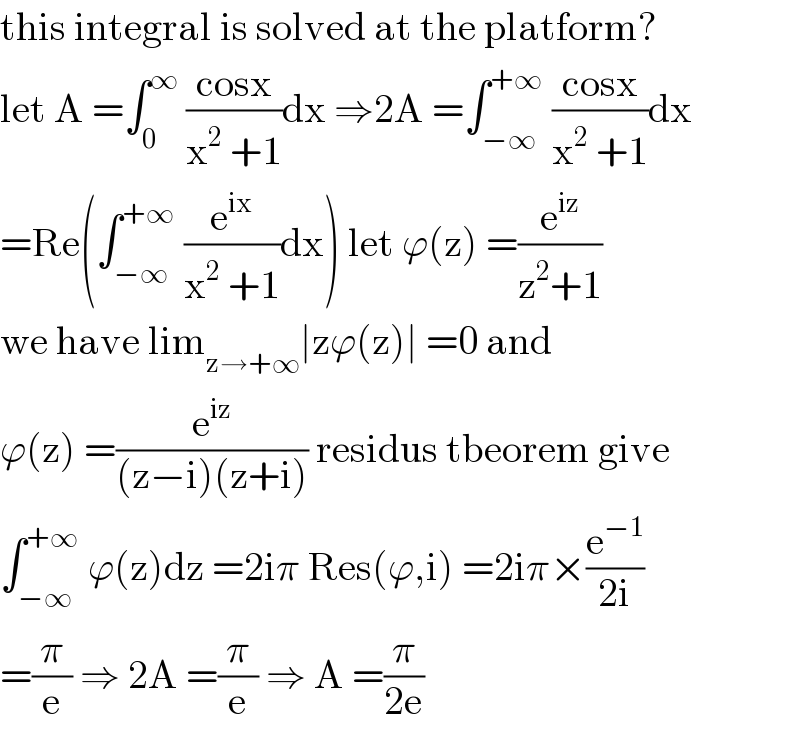
Question and Answers Forum
Question Number 103721 by Dwaipayan Shikari last updated on 16/Jul/20

Answered by Ar Brandon last updated on 16/Jul/20

Commented by Aziztisffola last updated on 16/Jul/20

Commented by abdomathmax last updated on 17/Jul/20

Answered by abdomathmax last updated on 16/Jul/20

Commented by Ar Brandon last updated on 17/Jul/20
Well-done Sir ����
Commented by Dwaipayan Shikari last updated on 17/Jul/20

Commented by mathmax by abdo last updated on 17/Jul/20

Commented by Dwaipayan Shikari last updated on 01/Aug/20
https://t.me/c/1457744274/126
